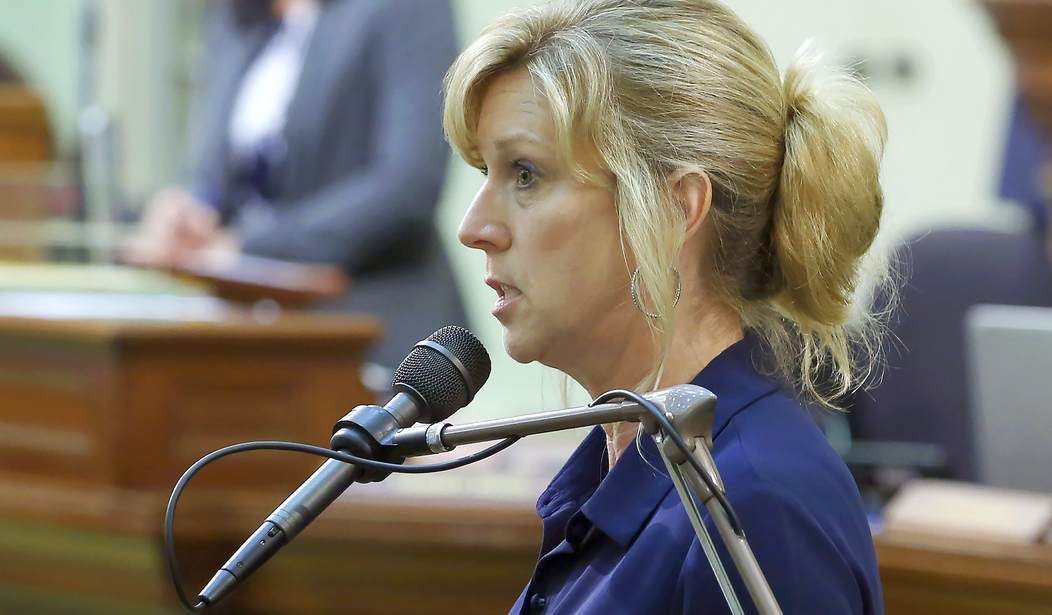During the coronavirus pandemic, self-employed people are able to receive government unemployment benefits for the first time thanks to the CARES Act. Democrats, who want nothing more than to eliminate independent contracting and self-employment (by using the PRO Act to create a fully unionized, dues-paying workforce) say this is an example of why all people need to be employees.
California Democrat Christy Smith, who’s locked in a tight special election battle for Congress in the state’s 25th District, echoes her fellow progressives’ claims that “worker misclassification” costs the government massive amounts of money and that self-employed people don’t pay into Social Security, Medicare, and unemployment so are a burden on the government when such services are needed.
Are those claims, which Smith made those claims during a virtual debate against her GOP competitor, Mike Garcia, on Friday, April 24, true?
First, here’s the video of the relevant portion of the debate.
Next, we’ll list Smith’s claims and analyze them.
CLAIM: Worker “Misclassification” costs state and federal governments a tremendous amount of money.
Smith said:
“But what we know about worker misclassification, which is what AB5 addresses, is that when a worker is misclassified it costs both the state and the federal government a tremendous amount of money. And the money that it costs doesn’t go to very critical programs that we are trying to utilize in this exact moment, like our state’s unemployment insurance. And so when workers are misclassified they’re looped out of that system.”
We’ll leave aside the first portion of her statement regarding California’s AB5. Worker misclassification, according to Smith and other Democrats, is when a person is classified as an independent contractor when they should be classified as an employee. It’s true that independent contractors or self-employed people do not pay into state unemployment insurance programs or state-run workers compensation programs, but they do pay into Social Security and Medicare by paying both the employer and the employee portion of those taxes (more about that later).
We’ll also leave definitions of employee and independent contractor out of this discussion since at this point they vary greatly from state to state, and even amongst California Democrats since their AB5 has such a hodge-podge of exceptions it’s impossible to find a logical thread weaving through them. And, in general, self-employed people are not eligible to draw unemployment, a state-run program, so how is the state losing a “tremendous amount of money” by not collecting money for a program from people who are ineligible to benefit from said program? At this time, the federal government is footing the bill for the unemployment benefits extended to self-employed people/independent contractors, so the state is still not on the hook for benefits paid to people who were forced out of work by the government.
So, we’re left with defining what a “tremendous amount of money” is. Multiple audit reports from the Department of the Treasury and the IRS claim that the percentage of non-collected taxes, otherwise known as the tax gap, attributable to misclassification is between .004 and 1 percent of all non-collected taxes. That number for tax year 2013 is estimated at $6 billion. Whether that is “tremendous” or not is an opinion.
RULING: Mostly false.
CLAIM: Independent Contractors don’t pay into Medicare and Social Security
Smith said:
“There are several things they’re [independent contractors] not paying very often. And that’s their unemployment insurance. They’re not paying into Medicare and Social Security. So in the end that costs us all, those who do pay into that system.”
It’s true that people who are self-employed (which includes freelancers and independent contractors paid through a 1099 or on a cash basis) do not pay into unemployment insurance. However, they do pay into both Medicare and Social Security. In fact, they pay both the employer and the employee portion through IRS Schedule SE on their tax returns, as this Social Security Administration guide explains. (Smith’s husband is a financial planner; she really should know better.)
RULING: False.
(Disclaimer: The author has has spoken out against AB5 on numerous occasions and is personally and professionally acquainted with both Smith and Garcia. The author has no professional involvement in the CA25 election in 2020.)














Join the conversation as a VIP Member